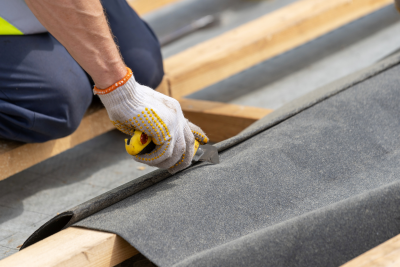2 min read
Colorado Court Applied Premises Liability Act to Roofing Injury Case
Joe Whitcomb
:
August 27, 2025

In 2021, Walgreens hired Nations Roof, LLC to repair the roof of one of its Colorado Springs stores. Nations Roof subcontracted the work to Laguets Roofing, LLC. During the project, the subcontractor used a portable gas-powered generator on the store’s roof. The generator was positioned near HVAC units, and exhaust entered the store through the ventilation system.
Employees inside the store, including Redonna Macomber, Karina Kujawa, and Jana McCullough, began experiencing headaches, nausea, and vomiting. Emergency services detected elevated levels of carbon monoxide, and several employees sought medical treatment for exposure. The workers later filed a lawsuit against Nations Roof and Laguets Roofing, asserting negligence claims for their injuries.
District court ruling
The roofing companies moved for summary judgment, arguing that the Colorado Premises Liability Act (PLA) provided the plaintiffs’ sole and exclusive remedy. The PLA defines a landowner broadly as a person in possession of property or legally responsible for conditions, activities, or circumstances on the property. The roofers asserted that their contractual obligations made them landowners under this definition.
The district court agreed. It determined that the roofers had legal authority to be on the property and were responsible for activities on the premises that led to the carbon monoxide exposure. Based on this, the court dismissed the plaintiffs’ negligence claims, holding that the PLA governed the dispute. The court also denied the plaintiffs’ motion to amend their complaint to add PLA claims, finding the request untimely and prejudicial to the defense.
Appeal
On appeal, the plaintiffs argued that the PLA did not apply because the roofers worked only on the roof and had no control over the store’s interior where the injuries occurred. They maintained that without proximity to the specific area of injury, the roofers could not be considered landowners under the statute. They also challenged the denial of their request to amend the complaint.
The Colorado Court of Appeals reviewed the statutory framework and prior case law. It emphasized that the PLA’s definition of landowner does not require physical proximity to the injury site. Instead, the statute covers any party legally responsible for the property’s conditions, activities, or circumstances, regardless of where on the property the harm occurred. The court concluded that because the roofers placed the generator and managed the roof work, they were legally responsible for circumstances that caused the injuries, qualifying them as landowners.
The court also upheld the denial of the plaintiffs’ request to amend their complaint. It noted that the plaintiffs knew of the roofers’ PLA defense months before the deadline to amend pleadings but chose to pursue negligence claims exclusively. Their request to amend came nearly a year later, after discovery and significant litigation, which the court found to be undue delay.
Final outcome
The Colorado Court of Appeals affirmed the district court’s judgment. It held that the Premises Liability Act applied, that the roofers qualified as landowners under the statute, and that the plaintiffs’ exclusive remedy fell under the PLA. The court also confirmed that the trial court acted within its discretion in denying leave to amend the complaint.
Help with premises liability and workplace injury claims
If you have suffered harm due to unsafe conditions on another’s property or are facing a premises liability dispute, Whitcomb, Selinsky PC handles claims involving property hazards, contractor liability, and workplace injury litigation. Reach out to schedule a consultation and learn how our team can assist with your case.


